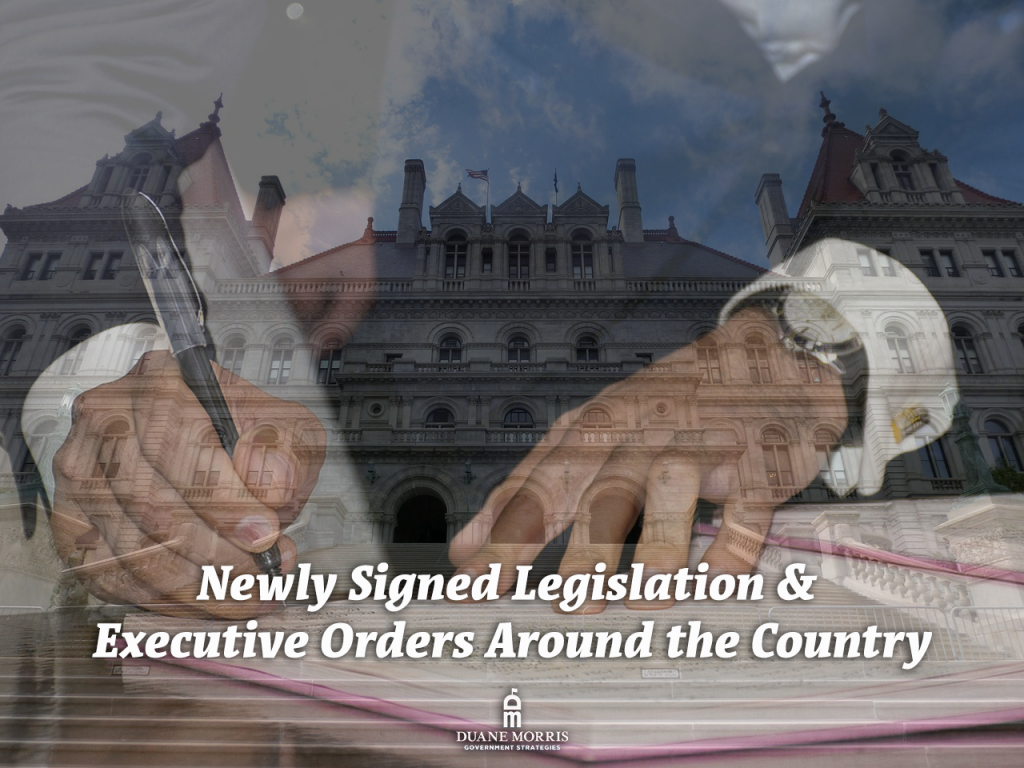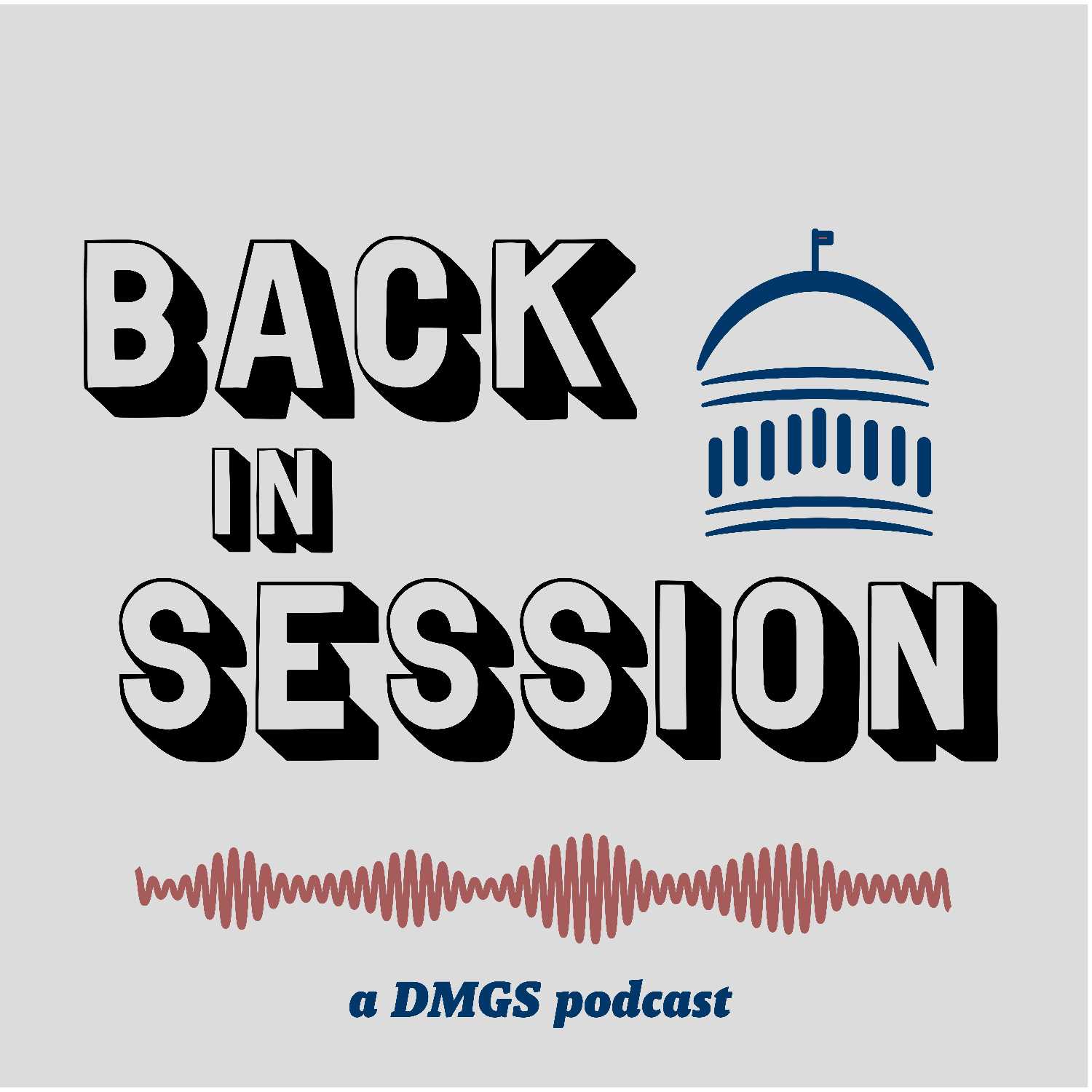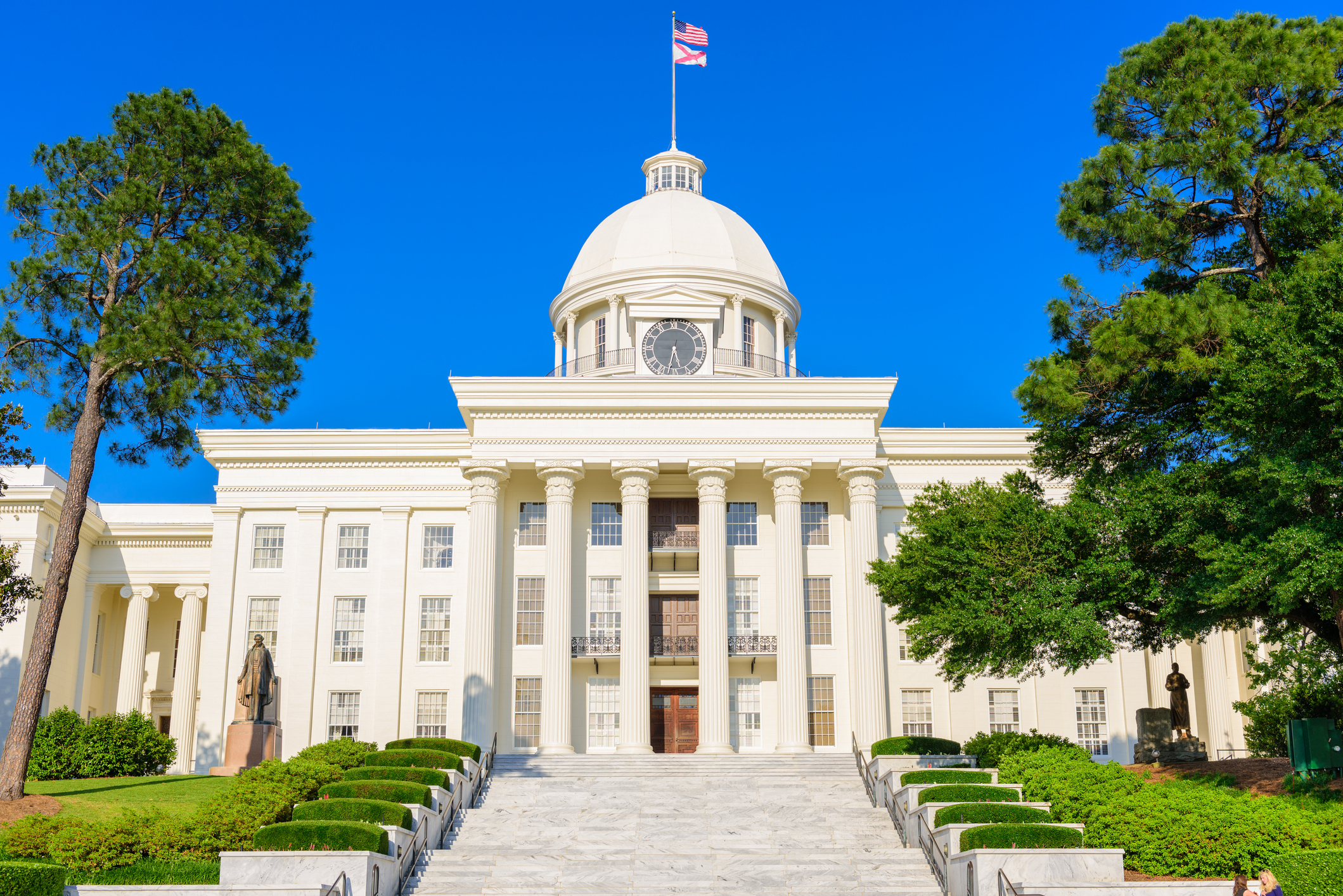We may be less than a month into 2022, but governors around the country have been busy with their State of the State addresses and signing new pieces of legislation or executive orders. New laws and orders being signed this year range across various issues, including COVID-19, public education, climate change, voting, and more.
Kansas
Governor Laura Kelly signed House Bill 2477 into law on January 21. The legislation essentially codifies Kelly’s executive orders that temporarily suspended health care provider regulations. Specifically, the bill, among other things:
- Allows the Kansas Department for Aging and Disability Services (KDADS) to extend any renewal deadline for any occupational or professional license, certificate, or registration that KDADS is responsible for issuing;
- Allows KDADS to issue a temporary authorization for anyone who receives minimum training in a nursing facility;
- Allows KDADS to issue temporary authorizations for people not previously licensed, certified, or registered while requiring nursing facilities to ensure anyone with temporary authorization is competent to perform and execute their duties;
- Allows the Secretary for KDADS to issue provisional licenses to adult care homes that submit a checklist and detailed plan for isolation and co-horting of residents in response to the pandemic;
- Allows physician assistants, advanced practice registered nurses, licensed practical nurses, nurse anesthetists, registered professional nurses, and licensed pharmacists to provide additional services to respond to the pandemic;
- Allows a registered professional nurse or licensed professional nurse whose license is exempt or inactive or has lapsed within the past five years to provide health care services; and
- Permits designated health care facilities to allow certain students, military members, and other personnel to volunteer or work within the facility in appropriate roles; allows an out-of-state health care professional to practice in Kansas without Kansas licensure.
HB 2477’s provisions expire on January 20, 2023.
New Jersey
Recently sworn in for a second gubernatorial term, Governor Phil Murphy has already signed numerous bills at the onset of 2022 from the previous (2020-21) legislative session. On January 18, Murphy signed dozens of bills sent by the Legislature.
Governor Murphy signed S4021/A6100 to create an Asian Americans and Pacific Islanders (AAPI) curriculum requirement for schools and S3764/A3369 to establish the Asian American Heritage Commission within the New Jersey Education Department.
Governor Murphy also signed S2515/A4676 to establish post-consumer recycled content requirements for rigid plastic containers, glass containers, paper and plastic carryout bags, and plastic trash bags and prohibit the sale of polystyrene loose fill packaging.
Governor Murphy also signed S2921/A5554, allowing municipalities to designate outdoor areas where people can consume alcoholic beverages.
Governor Murphy also signed S3707/A5673 to reform a statute that criminalized sex with another person while infected with a venereal disease or HIV under some circumstances. The bill requires prosecutions to keep a defendant’s name and other individuals confidential in prosecutions for endangering another by creating a substantial risk of transmitting infectious disease.
New York
Governor Kathy Hochul signed S7565B/A8432 on January 21 to allow absentee ballot voting through 2022 due to the ongoing COVID-19 pandemic. Previous legislation authorizing absentee ballot voting took effect in July 2020 but expired December 31, 2021. Now, voters concerned about in-person voting can request an absentee ballot through December 31, 2022.
North Carolina
In early January, Governor Roy Cooper signed Executive Order 246 to address the Tar Heel state’s contributions to climate change. The order sets goals for reducing statewide GHG emissions to at least 50% below 2005 levels by 2030 and achieve net-zero emissions no later than 2050 and also to increase the total number of registered zero-emission vehicles (ZEVs) to at least 1.25 million by 2030 and increase the sale of ZEVs so that 50% of in-state sales of new vehicles are zero-emission by 2030.
Pennsylvania
One of the last bills signed by Governor Tom Wolf in 2021 was Senate Bill 869. The bill allows for the virtual operation for state professional licensure boards and commissioners. The legislation requires each licensing board and commission to utilize a virtual platform to conduct their business for public meetings. The bill also requires each licensing board and commission to set rules and regulations on continuing education for distance education when the practice act requires continuing education for license, certificate, registration, or permit.
Virginia
Governor Glenn Youngkin wasted no time signing various executive orders and directives upon being sworn in as governor earlier this month.
Youngkin’s nine executive orders include:
- Executive Order Number One (banning instruction about “divisive concepts” in public education);
- Executive Order Number Two (banning school districts from implementing mask requirements);
- Executive Order Number Three (terminating the current state parole board and making five new appointments)
- Executive Order Number Four (requesting that the Attorney General initiate and coordinate investigative and prosecutorial efforts related to the Loudoun County school system);
- Executive Order Number Five (creating a Commonwealth Chief Transformation Officer);
- Executive Order Number Six (declaring Virginia “open for business”);
- Executive Order Number Seven (establishing the Human Trafficking Prevention and Survivor Support Commission);
- Executive Order Number Eight (establishing the Commission to Combat Antisemitism); and
- Executive Order Number Nine (withdrawing from the Regional Greenhouse Gas Initiative (RGGI)).
Youngkin also issued two directives:
- Executive Directive Number One (directing all Executive Branch entities under the governor’s authority to initiate regulatory processes to reduce by at least 25% of the number of regulations not mandated by federal or state statute); and
- Executive Directive Number Two (rescinding Virginia’s vaccine requirement for state employees).
Latest News
As legislative sessions kick off across the country, advocacy professionals must navigate diverse political landscapes, shifting priorities, and fast-moving policy developments. In this episode of Back in Session, hosts Ryan Stevens and Ryan DeMara sit [...]
Photo credit: iStock.com/hapabapa As the year draws to a close, state legislatures across the country are gearing up for their upcoming sessions in 2025. A critical aspect of this preparation is state legislative prefiling, a [...]
Photo credit: iStock.com/zrfphoto In the State of Washington, members of the General Assembly can pre-file legislation in the month before a legislative session begins. Beginning on December 4, 2023, lawmakers began pre-filing dozens of bills. [...]
Photo credit: iStock.com/SeanPavonePhoto On December 1, 2023, Alabama state lawmakers began pre-file legislation for the 2024 session, when their bills will receive an official introduction. In total, 35 bills have been pre-filed (30 in the [...]







Stay In Touch